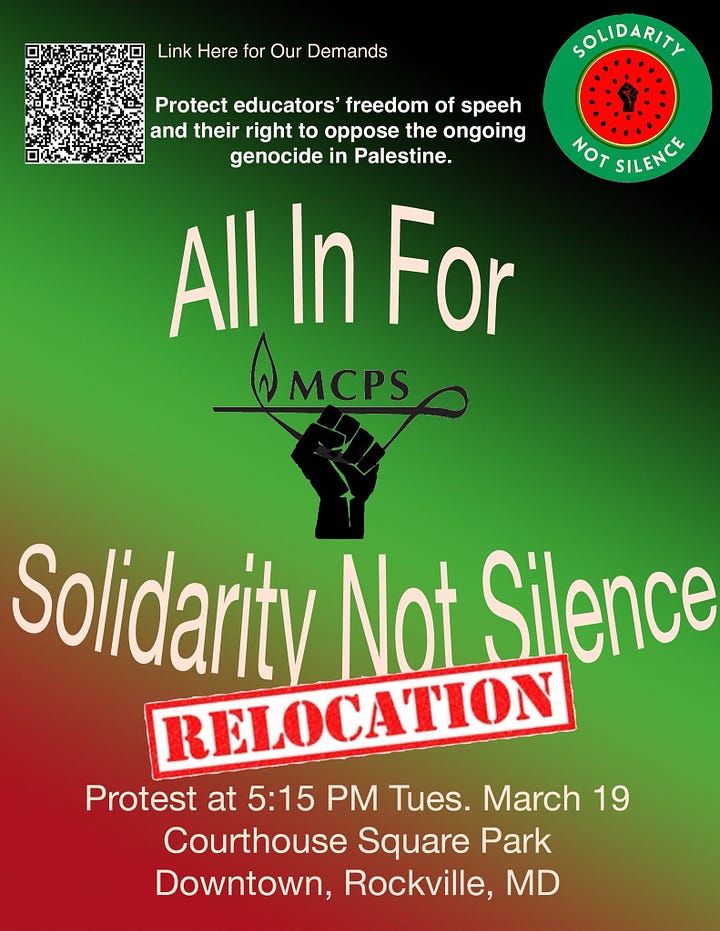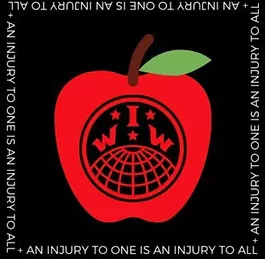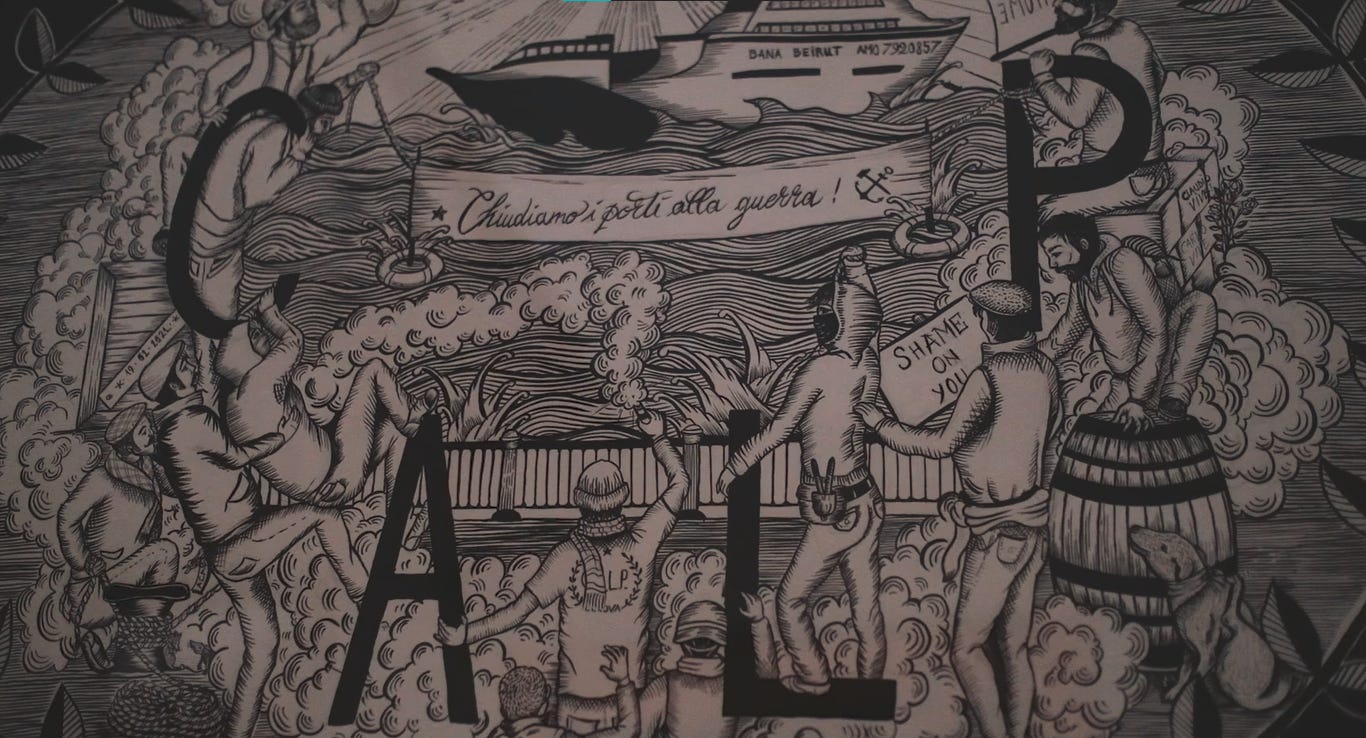Towards a Revolutionary Union Movement, Part 8: Internationalist
Revolutionary unions must foster international solidarity by rejecting the nation-state and militarism. That means organizing across borders and down global supply chains.
This is the eighth part in an essay series on revolutionary unionism. If you have not read the previous entries, you can start at part one here:
Towards a Revolutionary Union Movement, Part One: Introduction
The working class today stands at a crossroads amid deepening, interlocking crises. With education workers leading the way, the labor movement is in the early stages of revitalization—the awakening of a sleeping giant. For all their admirable successes, though, the prominent trade unions themselves have historically played a key role in constructing div…
Nationalism is a poison that has no place among the working class, especially not its revolutionary sections. Today’s nation-states are arbitrary institutions constructed by the bourgeoisie as ideal forms for accumulating capital through imperialist exploitation of the majority of the world. Capitalism has always been a globalizing system. From its earliest days it has spread from Western Europe to the entire world through colonization. Its supply chains stretch many thousands of miles—crossing political borders and sweeping up billions of workers into vast corridors of production, distribution, and consumption. It relies on uneven development between imperial cores and peripheries. A revolutionary union movement organizes down these supply chains, refusing to fall for the trap of nationalism.
Social democracy, as popularized by politicians like Bernie Sanders and organizations such as Democratic Socialists of America, fails to address imperialism. This should come as no surprise, since social democracy at home relies on complicity with imperialist policies abroad. Capitalists and politicians contain working class resistance in the Global North through public welfare programs, class collaborationist business unions, and consumerist culture. All of these come at the expense of workers in the Global South. A social democratic United States would have to reproduce this imperialist dynamic to deliver on its promises. We are not just speculating here, look at the supposedly model social democratic societies: the Nordic countries. They fully participate in the looting of the Global South, just like all other capitalist nation-states. And that goes back centuries. The most social democratic nations can ever accomplish is a fairer distribution of society’s wealth within their own borders. New Deal America couldn’t even deliver these benefits to Black citizens or other marginalized groups. Prominent social democrats appear unable—or unwilling—to address this critique. Instead, they denounce anyone who dares point out their hypocrisy as “tankies”, a now meaningless term.





A revolutionary union movement must break with social democracy. That means rupture with the nation-state itself. We have far more in common with workers across the world from us, and nothing in common with the bosses in our own country. Patriotism and nationalism are essentially one and the same, despite all the liberal attempts to separate the two. Revolutionary unionists belong to a “nation of workers,” as the early IWW members referred to themselves as. How can we be patriotic for a nation whose very existence is based on robbing land from indigenous peoples through genocide so demented that it inspired the Nazis? The United States is indefensible. Our movement, then, recognizes no borders except the one between workers and bosses.
Rather than seeing ourselves as the citizens of separate nations, workers should understand themselves to belong to an international working class community. It’s way past time to coordinate with—and learn from—our fellow workers in the Global South. Bangladeshi students, the Neighborhood Resistance Committees in Sudan, Bolivian mine workers and peasants, and of course Palestinian workers all point the way forward for our movement. We have to actively cultivate deep relationships of solidarity with workers involved in these movements and others. For nearly a year now, militants within the labor movement have been struggling against Israeli apartheid and genocide in Palestine. While not receiving much publicity for it, IWW locals have been on the ground consistently, organizing with Palestine Solidarity movements in the United States, Canada, and Europe. For example, IWW DMV EWOC helped coordinate the Solidarity, not Silence! campaign, alongside rank-and-file teacher unionists, students, and other local activist groups such as Jewish Voice for Peace and Maryland2Palestine.
Similarly, there are quite a few revolutionary unions outside the United States that we need to learn from and coordinate with. All of us are building with few resources, no institutional support, and amidst escalating repression. We should work to strengthen international coordination between our unions through bodies such as the International Confederation of Labor (ICL) and the International Workers Association (IWA). When beneficial to us, we should also cooperate with the mainstream, moderate union movements around the world. Our goal is to spread the revolutionary union struggle along international supply chains, by whatever means necessary. In Italy, the migrant militants of Si Cobas and Genoa’s Autonomous Dockworkers’ Collective (CALP) give us a glimpse of what this might look like in practice. CALP is organizing transnational strikes of dockworkers against militarism, and has already been instrumental in getting all weapons shipments to active warzones banned in the city of Genoa. Si Cobas, positioned at a critical juncture in international supply chains, could expand these struggles into the logistics sector. Workers' Initiative, which has a foothold at Amazon in Poland, could expand the struggle further still.
All of this obligates us to reject all war except the class war. Every government, every boss is our enemy, especially “our” government and “our” bosses. Whenever they trick us into supporting yet another imperialist war (because somehow it’s different this time) against our proletarian siblings, we are fighting ourselves. Our revolutionary union movement has to take a strong, principled stance against every—and yes, we mean every—war the politicians try to sell to us, followed by concrete strategy and tactics on how to obstruct the war effort at the point of production. That includes direct action to aid indigenous peoples in achieving decolonization of Turtle Island, so-called North America.
That's all for Part 8! Check back next week for Part 9, which emphasizes the need for revolutionary unions to unite with antifascist struggles.
Towards a Revolutionary Union Movement, Part 9: Antifascist
This is part nine of an essay series on revolutionary unionism. If you have not read the previous entries, you can start at part one here:
Work in education? Get involved!
This is a project to gather a community of revolutionary education workers who want a socialist education system. We want to become a platform for educators of all backgrounds and job roles to share workers’ inquiries, stories of collective action, labor strategy, theoretical reflection, and art.
Whether you’re interested in joining the project, or just submitting something you want to get in front of an audience, get in touch! Check our post history to get a sense of what we are looking for, but we are open minded to all sorts of submissions.
Reach out to angryeducationworkers@protonmail.com or over any of our social media. You can also contact us on the signal by reaching out to proletarianpedagogue.82.
Support Our Work
All our public work is freely available with no paywalls, and always will be. But if you want to help our collective cover the costs of hosting webpages, creating agitprop, and finding research materials, then please consider signing up for a paid subscription or donate to us on Ko-fi if you don’t want to give money to substack. With enough support, we can begin sharing the funds among collective members for them to use on various projects and pay others for any work they do for us—such as translating or printing materials.











In Europe the unions are international, across the borders of the 27 countries that make up the EU. They cooperate and share policy ideas and collaborate of policies for the European Union to implement, such as laws to put worker representation on the Boards of larger companies, and legal rights for people made redundant, and maternity and paternity leave, and keeping the job open when a woman has a baby, and much more.
On a different point, I have never understood why unions don't take over the training to do their particular skills and jobs, from apprenticeships and into professional qualifications and management training. Is it had done so worldwide 50 years ago, by now millions of company owners and directors would be former union members and the entire landscape of management and government would have changed.
Not too late to do it starting now!
Please study the works of the late Dr Gene Sharp. He told us how to have a successful revolution.
He wrote From Dictatorship to Democracy, and there's a documentary about him called "How to Have a Revolution." It used to be up on YouTube but now you might have to buy the DVD. It's for sale on eBay.